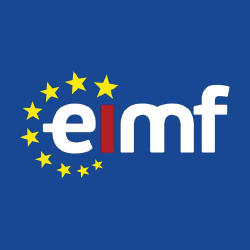
International Accounting Standards (IFRS/IAS) – The Latest Developments
- Λογιστικά/ Έλεγχος/ Φορολογικά
ΠΕΡΙΓΡΑΦΗ
The global financial reporting environment is complex and in a state of perpetual change, which can place a heavy burden on businesses to comply with the reporting requirements. A big challenge facing businesses is ensuring that the right people within the organisation understand the relevant accounting requirements in order to achieve compliance with the accounting standards.
This training program aims to update the participants on the application of the most recent changes to the financial reporting standards.
ΣΚΟΠΟΣ ΣΕΜΙΝΑΡΙΟΥ
By the end of the programme, participants will be able to:
- Describe the context and purpose of financial reporting.
- Describe the main changes incurred and will be incurred to the IFRSs.
- Outline and analyse the reporting requirements emanating under the main financial standards.
- Describe the accounting for assets requirements.
- Outline and analyse the requirements for the calculation of the fair value of specific assets.
- List the financial statements’ presentation requirements as per the applicable standards.
- Outline and analyse the liabilities and equity reporting requirements.
- List the reporting options available.
- Explain the importance of adhering to the accounting principles and standards to maintain the consistency and integrity of financial information.
- Apply the requirements of IFRS and their applicable changes.
- Establish the need to deploy tools to support the application of changes in IFRS’s requirements.
- Apply the changes to the reporting requirements.
- Perform the measurement methods to calculate the fair value of assets.
- Prepare the financial statements according to the changes of IAS1.
- Apply the options available emanating from IFRSs.
- Manage stakeholder’s expectations
- Assess the readiness of the organisation to apply the requirements of the standards
- Recommend solutions to address the changes to the standards
- Adopt a formal policy to be followed when addressing IFRS requirements
- Justify the importance of applying the IFRSs requirements
- Justify the need of a company to apply the requirements of the standards
ΣΕ ΠΟΙΟΥΣ ΑΠΕΥΘΥΝΕΤΑΙ
- Accountants
- Financial analysts
- Financial Controllers
- Internal and External Auditors
- Lawyers
- Bankers
- Business owners
- Non-financial professionals and managers
ΠΕΡΙΣΣΟΤΕΡΕΣ ΠΛΗΡΟΦΟΡΙΕΣ
Training Outline
World View of IFRS
- Introductions
- Course overview
- Adoptions of IFRS around the world
- Recent IFRS Changes – What’s New?
Applying IFRS 9: Financial Instruments
- IFRS 9’s classifications of financial assets
- Business models and contractual cash flow characteristics
- Impairment of receivables
Applying IFRS 15: Revenue Recognition
- IFRS 15’s 5-step approach
- Practical examples of recognition of revenue over time
- Contract assets and contract liabilities
IFRS 16: Applying the leasing standard
- Summary of the new approach
- Overview of the consequences
- Revised definition of a lease
- Optional exemptions of leases
- How a lessee should initially recognise a lease
Accounting for Assets: How much fair value is there now in IFRS?
- Different types of use of fair value: initial measurement, subsequent measurement, and impairment
- How much fair value was already in IASs?
- How much fair value has IASB added by 2022?
- Under the options, how much fair value is chosen by companies?
Presentation of Financial Statements; and why are there two income statements?
- Amendments to IAS 1 in recent years
- Changes to IAS 1 and IAS 7 (new standards expected, resulting from ED of 2019)
- Preparing the Statement of Changes in Equity
- Why are there two income statements?
- Examples of contents of Other Comprehensive Income
- When and why are items reclassified out of OCI?
Liabilities and equity: What exactly is the dividing line, and why does it matter?
- The IASB’s exposure draft (expected 2022) on ‘Financial Instruments with Characteristics of Equity
- How this will affect practice
Practical problems with ‘liabilities’ in IFRS: Definition, recognition, and measurement
- Why certain things are not liabilities (e.g., most share-based payments, proposed dividends, restructuring provisions, non-controlling interests)
- When to recognise law cases against the company
- How the various liabilities are measured under IFRS
Options remaining in IFRS in 2022: Which should your company choose?
- Options on presentation in IAS 1 and IAS 7
- Options on asset measurement: inventories, PPE, investment property, and intangibles
- Other IFRS options available to companies
Training Style
- Illustration of key terms and concepts
- Preparation and discussion of practical examples, including mini cases
- The course will have both a theoretical and practical framework with real examples drawn from actual companies, local and international
- Activities and Break-out groups
CPD Recognition
This programme may be approved for up to 7 CPD units in Accounting and Auditing. Eligibility criteria and CPD Units are verified directly by your association, regulator or other bodies which you hold membership.
Πληροφορίες Εκπαιδευτή
Αναλυτικό Κόστος Σεμιναρίου
- € 240.00
- € 0.00
- € 45.60
- € 240.00
- € 285.60
Κοστολογικές Πληροφορίες
HRDA-approved seminars are exempted from VAT for eligible organisations applying for the HRDA subsidy. A 19% VAT will apply to seminars and participants who do not qualify for the HRDA subsidy
 Ελληνικά
Ελληνικά  English
English



 Αγγλικά
Αγγλικά
 7 ώρες
(
2 μέρες
)
7 ώρες
(
2 μέρες
)




















































